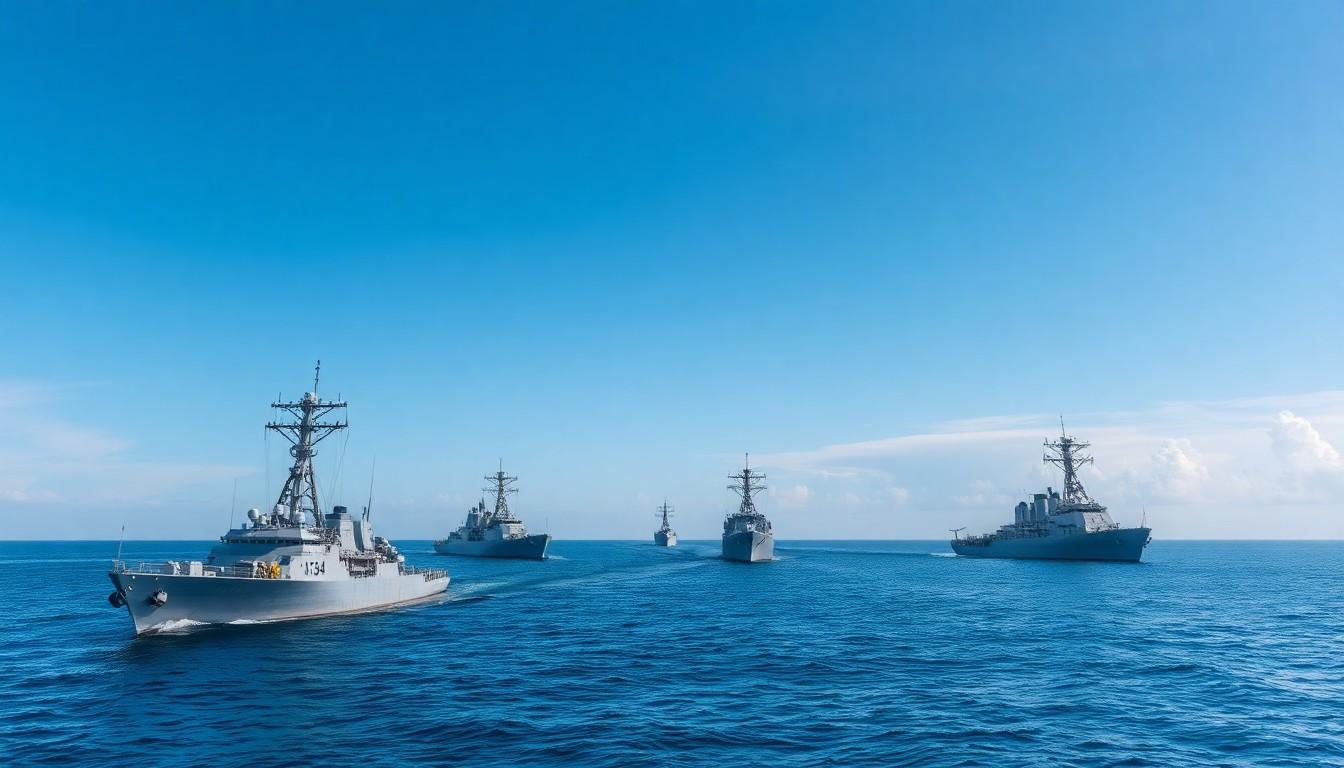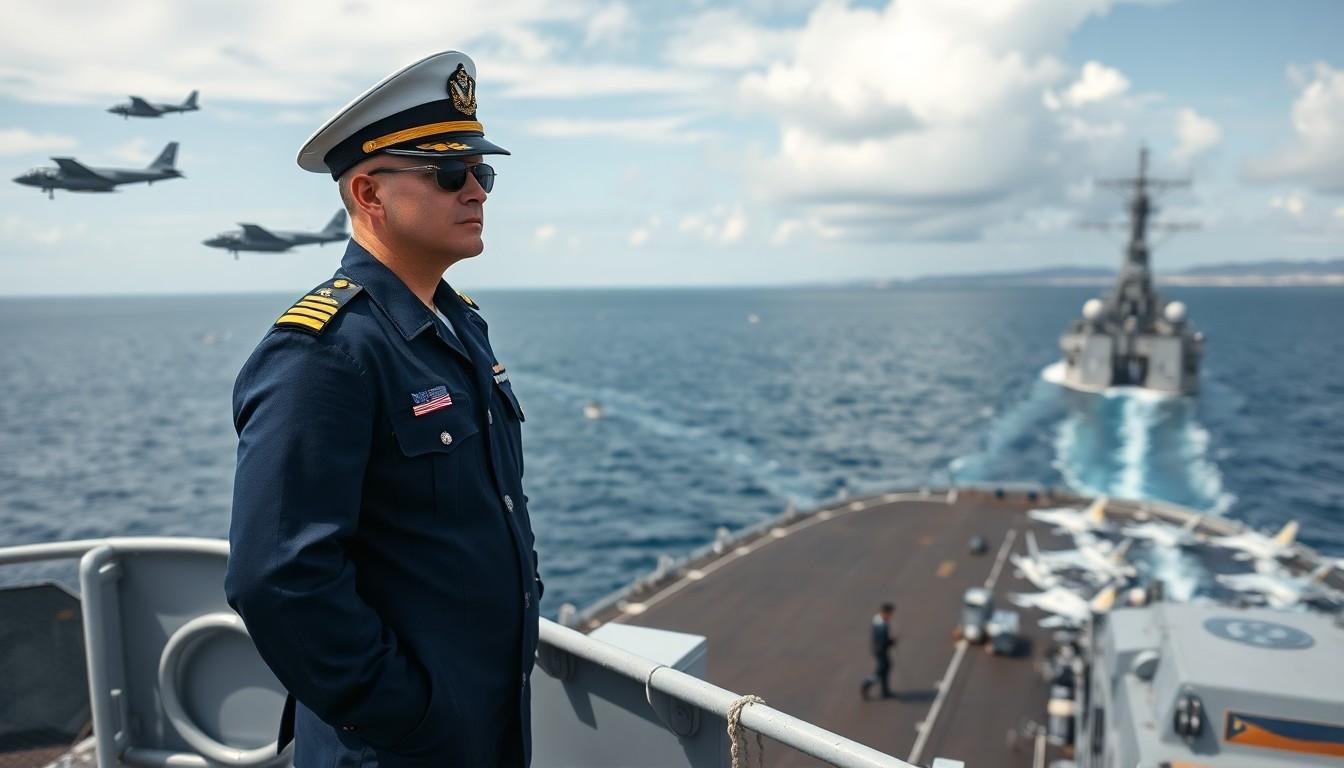Phone:
(701)814-6992
Physical address:
6296 Donnelly Plaza
Ratkeville, Bahamas.

The West Philippine Sea isn’t just a body of water; it’s a bubbling cauldron of geopolitics, marine life, and the occasional fishing boat drama. As nations navigate the waters of diplomacy and territorial claims, the stakes are higher than ever. It’s a real-life game of chess where the pieces are ships, reefs, and a whole lot of fish.
For those who think the West Philippine Sea is just another spot on the map, think again. This region is at the center of thrilling developments that could shape the future of maritime law and international relations. With news breaking daily, staying updated isn’t just smart; it’s essential. So, grab your virtual life jacket and dive into the latest happenings in this captivating maritime saga.
West Philippine Sea news covers various topics significant to the region’s geopolitical landscape. Recent reports highlight ongoing territorial disputes involving China, the Philippines, and other Southeast Asian nations. Environmental concerns arise from increased military activities and resource extraction, prompting calls for sustainable practices.
Monitoring developments in the area is crucial due to its implications for international maritime law. Tensions often escalate, marked by naval standoffs and diplomatic protests. For instance, the Philippine government frequently asserts its claims, emphasizing the nation’s commitment to protecting its sovereignty.
Significant military exercises conducted by allied forces, such as the United States, signal international support for the Philippines. These joint maneuvers aim to bolster defense readiness and deter aggressive actions. Regional groupings like ASEAN also discuss collaborative strategies to address these complex challenges.
Local fishing communities face uncertainty due to the shifting dynamics in the West Philippine Sea. Fish stocks dwindle, affecting livelihoods and food security. Attention towards diplomatic resolutions increases, as negotiations focus on establishing rules-based order.
Emerging technologies play a role in surveillance and resource management, enhancing maritime security. Innovations such as satellite monitoring improve awareness of illegal activities. Increased cooperation among nations fosters a sense of collective responsibility in addressing issues in the sea.
The West Philippine Sea remains a focal point for discussions regarding national interest and regional stability. Stakeholders actively seek avenues for dialogue and conflict resolution. Public interest continues to grow, exemplified by robust media coverage highlighting developments in the area.

Recent activities in the West Philippine Sea reflect a dynamic geopolitical landscape. Key developments continue to shape international relations in the area.
Naval exercises among allied forces strengthen defense cooperation. The United States, for example, recently conducted drills alongside the Philippine Navy and other Southeast Asian partners. Increased military presence aims to deter aggressive actions from China, emphasizing regional security. Reports indicate that submarines and air support are part of these exercises, showcasing advanced capabilities. Enhanced military readiness leads to greater confidence among local leaders in asserting territorial claims.
Diplomatic dialogues remain crucial in addressing ongoing conflicts. ASEAN member states engage in discussions to formulate a unified response to territorial disputes. The Philippines consistently advocates for international law, calling for adherence to the UN Convention on the Law of the Sea. Regular meetings with global powers highlight the importance of multilateral efforts in maintaining stability. Local communities benefit from these engagements, as efforts focus on sustainable fishing practices and resource management. Diplomatic resolutions aim to establish a rules-based order, benefiting all nations involved.
Environmental issues in the West Philippine Sea arise primarily from military activities and resource extraction. These concerns greatly affect marine life and ecosystems.
Increased military presence disrupts natural habitats, posing risks to diverse marine species. Coral reefs suffer from pollution and physical damage caused by naval exercises. Overfishing exacerbates these threats, leading to declining fish stocks and impacting local communities. Reports indicate that specific species, such as tuna and reef fish, face severe population pressures. Conservation efforts must address these risks to sustain fisheries and preserve biodiversity for future generations.
Climate change significantly impacts the West Philippine Sea through rising sea levels and ocean acidification. Local temperature increases stress marine ecosystems, affecting coral bleaching and fish migration patterns. It’s critical to monitor these changes closely, as they pose dangers to food security and local economies that rely on fishing. Moreover, water quality declines in areas affected by runoff and increased temperatures, further threatening marine life. Governments and organizations must collaborate to implement measures that mitigate these effects and promote sustainable practices.
The economic implications of developments in the West Philippine Sea are significant and multifaceted. Stakeholders are keenly interested in how ongoing disputes impact various industries, notably fishing and energy exploration.
Local fishing communities depend heavily on the rich marine resources of the West Philippine Sea. Recent tensions and territorial disputes have led to restricted access to traditional fishing grounds. As a result, local fishermen face declining catch rates, significantly affecting their livelihoods. Moreover, competition with larger fleets exacerbates the risks of overfishing. Sustainable fishing practices must become a priority to ensure food security for future generations. Investment in community-based management systems can enhance the resilience of local fisheries. Increased diplomatic efforts can help secure better access for local fishers, promoting collaboration among neighboring nations.
Oil and gas exploration holds great potential for economic growth in the West Philippine Sea. The region is believed to contain substantial hydrocarbon reserves, which could significantly benefit the economy if tapped responsibly. Negotiations involving multiple countries often lead to heightened tensions due to overlapping territorial claims. Legal frameworks under international law can provide a basis for cooperative exploration efforts. It’s essential for the Philippine government to balance resource extraction with environmental protections. Engaging in partnerships with international companies can bring technological advancements and investments. Developing these resources has the potential to enhance energy security and promote regional stability.
The West Philippine Sea remains a critical focal point for geopolitical dynamics in Southeast Asia. Ongoing territorial disputes and military activities highlight the complexities of international relations in the region. As nations navigate these challenges, the importance of sustainable practices and adherence to international law cannot be overstated.
Local communities continue to face the repercussions of dwindling resources, emphasizing the need for collaborative solutions. With growing public interest and media coverage, it’s clear that the situation in the West Philippine Sea will continue to evolve. Stakeholders must remain vigilant and proactive in addressing both environmental and economic concerns to ensure a stable and prosperous future for the region.